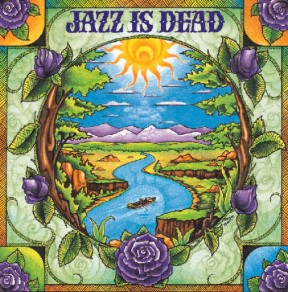An interview with Erroll Garner:
(This is the latest in a weekly series of arts-related videos that appear in this space each Wednesday.)
Archives for June 9, 2010
TT: Isn’t, didn’t, don’t
 I long ago gave up trying to tell jazz musicians, journalists, and bloggers that I have never written, nor do I believe, that “jazz is dead.” You will search this column in vain for the words “dead,” “death,” or “dying.”
I long ago gave up trying to tell jazz musicians, journalists, and bloggers that I have never written, nor do I believe, that “jazz is dead.” You will search this column in vain for the words “dead,” “death,” or “dying.”
Alas, most of the people who commented on what I wrote in The Wall Street Journal last August either didn’t read my original column or misunderstood what it said. I’m not sure into which pigeonhole the founders of the 2010 NYC Undead Jazzfest should be inserted. I am, however, amused to have had an entire jazz festival named after something that the founders of the festival mistakenly believe that I wrote, and I wish them the very best of luck.
In the meantime, I direct your attention to this Village Voice story about Woody Allen’s parallel career as a jazz clarinetist, and in particular to this part of the story:
“If God plays the baddest saxophone solo ever played in the woods, and nobody hears it, did He make a sound?” asks Jazz at Lincoln Center curator Phil Schaap, Charlie Parker audible in the background. Host of the so-themed “Bird Flight” hour on Columbia University’s WKCR radio–and, owing to both its unbroken 29-year weekday run and his inexhaustible scholarship of all jazz, the subject of a lengthy New Yorker profile in 2008–Schaap is a stern critic of the jazz community’s short-sighted direction of its resources. The Juilliard professor maintains that what scant funding remains is being funneled into performance studies while ignoring the substantial problem of how to fill the seats offstage, which is “fool’s gold at best.”
“There’s no audience development–none–in the jazz-education system, yet they’re turning out would-be professionals in the low four figures annually, and it can’t work,” says Schaap, 59. “It’s a train wreck. The jazz community is a shrinking one, and part of this that is most glaring is with the young. If something isn’t done, then the music will be further marginalized to the point where I’m not quite sure how it will survive.”
Indeed, jazz audiences are skewing much older and scarcer than before. A National Endowment for the Arts survey showed that the median age for American adults who attended a jazz concert in 1982 was 29. In 2008, that median age had risen to 46. More alarmingly, the Recording Industry Association of America reported jazz sales to make up just 1.1 percent of all music sales in 2008 (the most current available stats), a precipitous drop from the decade high of 3.4 percent in 2001.
The overarching implication: Jazz is showing a dangerous lack of renewability with future generations, and what is not heard is not preserved. New York, while still a slightly stronger jazz microcosm than the country at large, exhibits the same warning signs: a shrinking number of venues, a lack of mainstream exposure to entice new audiences, and a splintered community of performers fighting stylistically among themselves. Clearly, the jazz community here is worried; many participants have a fatalistic spin Woody Allen could appreciate.
“I think jazz in general is about to die off,” says Spike Wilner, owner of Small’s jazz club in the West Village and himself a traditional-leaning stride pianist. “The most important thing is: You don’t have, at all, the venues you used to have….Young audiences aren’t exposed to jazz early on anymore when there’s no place for them to discover it. Where are they gonna discover jazz? It’s not taught in their schools; you’re not able to find it on the radio. They’re not gonna stumble upon it.”
Sound familiar? It should. I can’t tell you how many jazz musicians of all ages–many of them famous–have said exactly the same things to me.
Not surprisingly, my Wall Street Journal column goes unmentioned in the Village Voice story. Nevertheless, the whole piece is worth reading.
TT: Almanac
“No amount of fire or freshness can challenge what a man will store up in his ghostly heart.”
F. Scott Fitzgerald, The Great Gatsby
